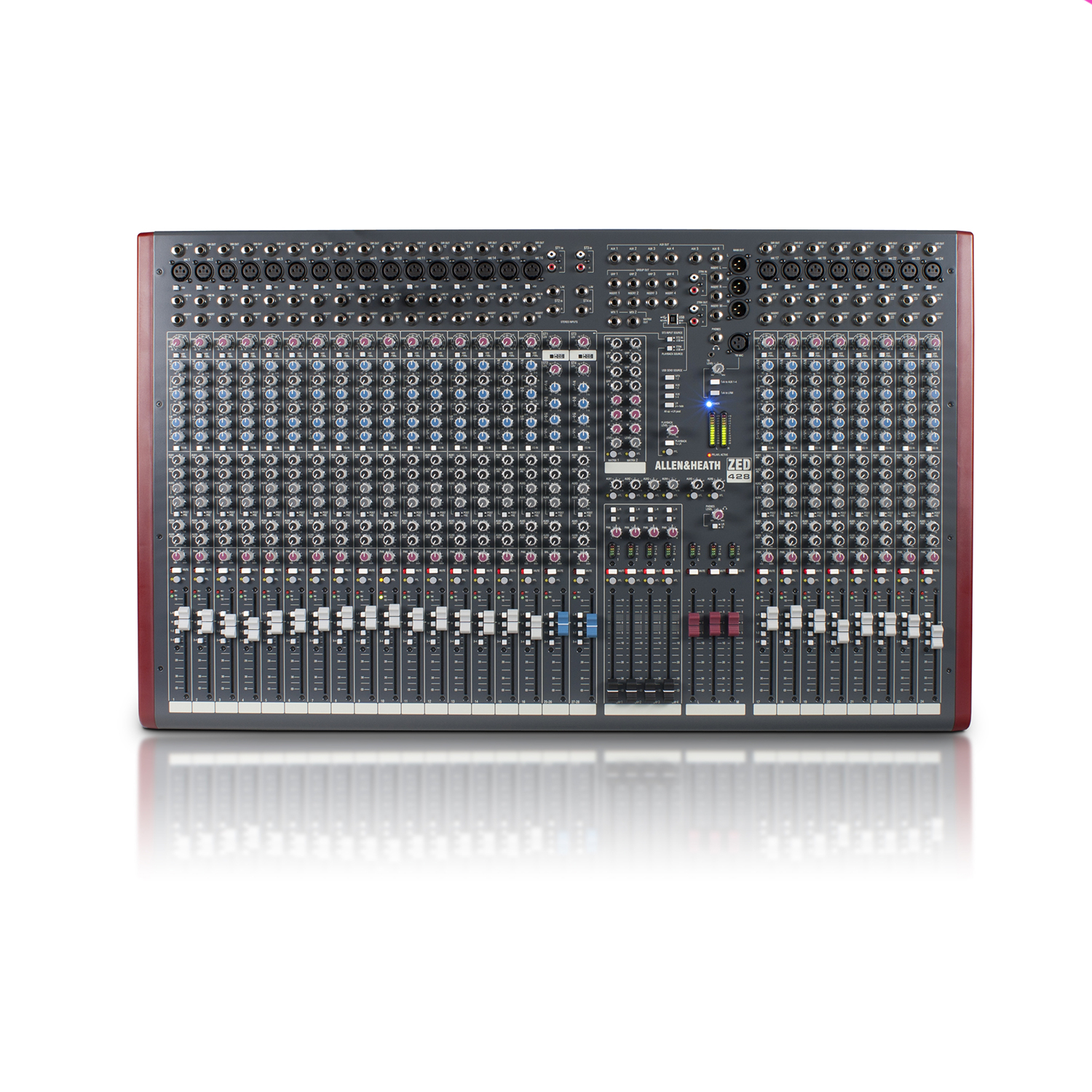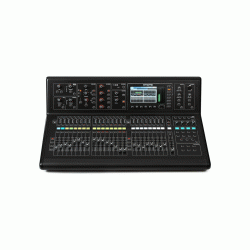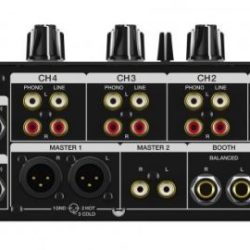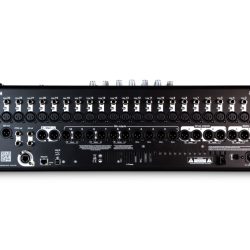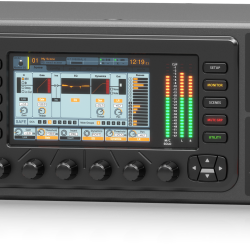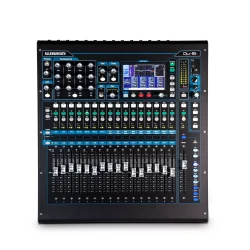ZED-428 is excellent for bands, houses of worship, theatres or AV applications. It has a truly professional feature set, which will fit any sound reinforcement application or professional PA hire stock. ZED-428 has configurable USB audio in/out, making it easy to capture stereo recordings, plus 24 mic/line inputs, 2 dual stereo inputs, 4-band EQ with MusiQ, 4 sub-groups, 6 auxiliary sends and a 7×2 matrix.
USB AUDIO FLEXIBILITY
Getting audio to and from a computer easily is now a common requirement for live sound and music production. The way this has been implemented on ZED is super-flexible and super-easy! No longer do you need to fiddle around the back of your PC to get to the soundcard inputs, only to find that the levels are all wrong and noisy. Just plug in a USB lead to your ZED, select the USB routing on the mixer and the device on your computer and that’s it! CD quality audio to and from your PC or Mac. Switches and connection through jack socket terminals provide different send/return configurations:-
SEND OPTIONS
1) Main Mix Left + Right (Post-fade)
2) Main Mix Left + Right (Pre-Fade)
3) Auxes 1-2
4) Auxes 5-6
5) Matrix 1-2.
RETURN OPTIONS
1) To Playback input
2) To Stereo 3 channel
MUSIQ
ZED-428 has a tuned 4-band EQ taken from the acclaimed GL2200 mixer, utilising MusiQ – with optimised slope (or Q factor) for equalising individual instruments.
DUOPRE
Based on the proven pre-amps from the hugely successful PA series, ZED-428 has DuoPre pre-amps, which use a two stage design, with carefully controlled amounts of gain in each stage. When amplifying the signal from the XLR input, the gain range is huge – 69dB of range to be exact – and is very evenly distributed around the gain control, meaning better control of signal level. Most of the gain comes from the first stage, so unwanted noise is kept to a minimum. Line level signals are simply plugged into the second stage of the pre-amp by using the line input jack socket, which has the great advantage of less noise when using the line input and also matching to a higher input impedance.

